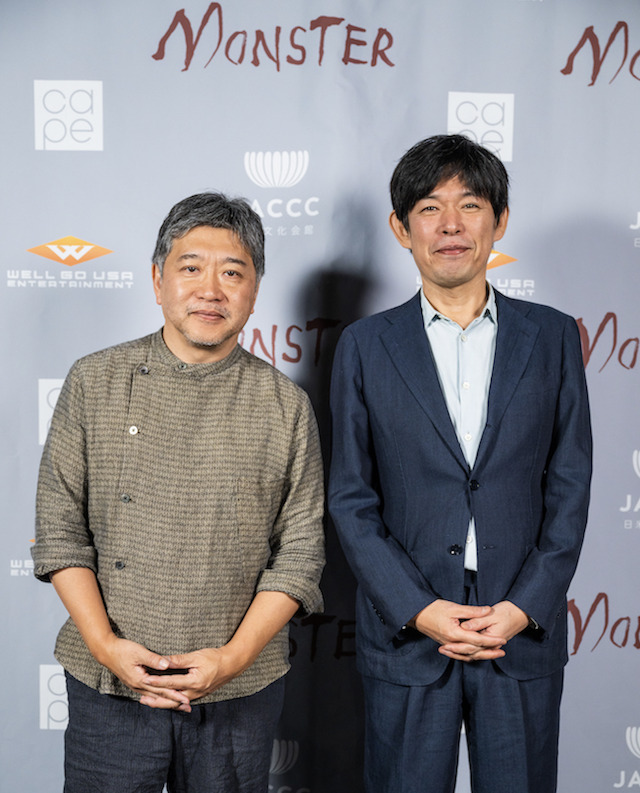
@Photo by Cory Sherwood, Courtesy of Well Go USA Entertainment
Synopsis : When her young son Minato starts to behave strangely, his mother feels that there is something wrong. Discovering that a teacher is responsible, she storms into the school demanding to know what’s going on. But as the story unfolds through the eyes of mother, teacher and child, the truth gradually emerges.
Rating: PG-13 (Brief Suggestive Material|Thematic Material)
Genre: Drama, Mystery & thriller
Original Language: Japanese
Director: Hirokazu Kore-eda
Producer: Genki Kawamura, Kenji Yamada
Writer: Yuji Sakamoto
Release Date (Theaters): Nov 22, 2023 Limited
Runtime: 2h 6m
Distributor: Well Go USA Entertainment
Production Co: Toho Company
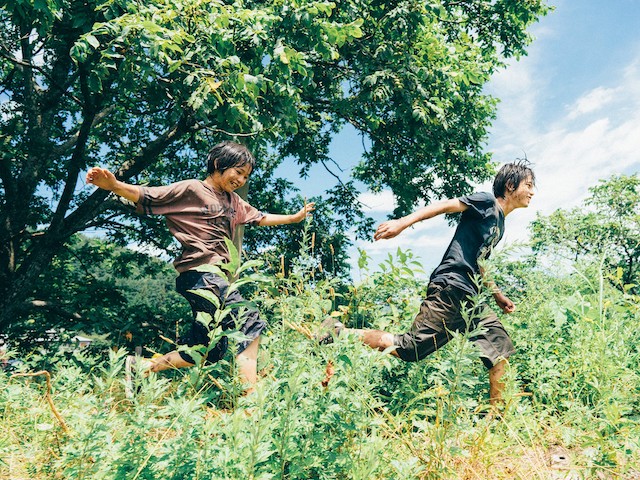
@Courtesy of Well Go USA Entertainment
Exclusive Interview with Writer Yuji Sakamoto
Q: For the film “Monster,” you wrote the screenplay from childhood memories. At what point, did Kore-eda-san join you to work on finishing the screenplay, even though Kore-eda-san isn’t credited for the screenplay? Did you have a relationship with him prior to making this film?
Yuji Sakamoto: Yes, we did interact with each other prior to making this film. We had been on stage together about three times in talk shows, lectures and such. We may have had dinner a couple of times, but we had talked in public a few times instead of privately. The first time we met was probably about 2015. This “Monster” project started around 2018, so I got together with producers Genki Kawamura and Kenji Yamada.
At that time we weren’t thinking about collaborating with Director Kore-eda-san at all. Producers Genki Kawamura and Kenji Yamada asked if we would like to make an original film, and started to formulate a project. When the plot was completed through discussions among the three of us, we asked ourselves what kind of director we should approach. As the three of us talked, we ended up asking Kore-ed-san. At the beginning, of course, we were all very honored and happy; I didn’t think he would take on this project, but was surprised to hear when Kore-eda-san replied that he wanted to do it right away.
From there, we started working on the script together. Ko’re-eda-san’s approach was that he always writes his own script, but this time he started with a script written by someone else, with the intention of filming mainly what the writer was aiming for. He didn’t give too many major opinions about this script. For example, I started out with a nearly four-hour script, and every time I cut two hours from it, Kore-eda-san would go back and rewrite it, asking me to rewrite this part or that. He gave his opinions, but I don’t think there were any spots where Kore-eda himself added his own writing to the script.
Q: Kore-eda-san also made a documentary about an elementary school in Nagano Prefecture, in which he followed closely with a home video camera in his hand. Based on his experience with that film, was there anything he added to your script?
Yuji Sakamoto: I believe that documentary was made when Director Kore-eda was working in TV before he made his debut as a film director. He didn’t talk much about that, but the director often referred me to the novel “Night on the Milky Way Railroad” by Kenji Miyazawa. I wasn’t aware of it when I wrote the plot, but read it for the first time in a long time when Kore-eda handed it to me.
Q: You also participated in the audition of casting child actors. How did you and Kore-eda-san choose the characters Minato (Souya Kurokawa) and Yori (Yota Hiiragi)? What was the deciding factor?
Yuji Sakamoto: Actually, I only went to see the last part of the auditions. I ended up seeing what kind of child actors that Kore-eda-san would choose and how he chose them. I watched them as one of Kore-eda-san’ fans. It’s well known that Kore-eda-san is good at using child actors in his films. I went to the auditions with the intention of discovering the secret of how such a process was done. I had no desire to choose anyone myself. He was very active in the audition process, talking with the children and having them act out the play before making his decision.
At the time, I wasn’t really convinced about the two people that he ended up choosing, but Kore-eda- san made it clear that these were the only two he had in mind, and made his decision. Until I saw the finished film, I had no idea what Kore-eda-san thought was so good about them. But now, it seems so evident in my mind after seeing the film why Kore-eda-san chose those two child actors.
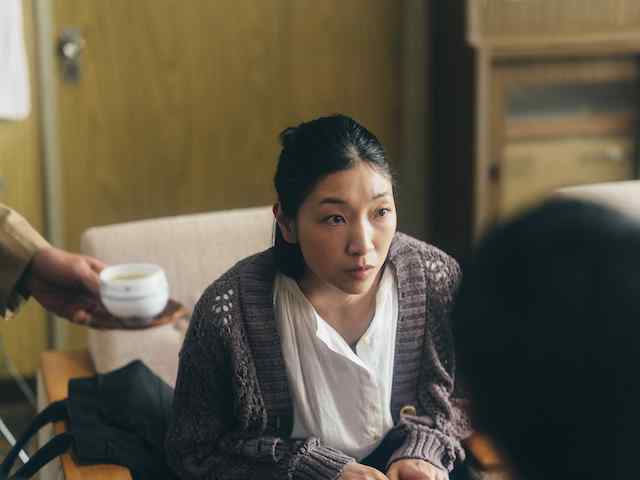
@Courtesy of Well Go USA Entertainment
Q: With past Kore-ed-san’s works, he rewrote his own scripts by directly interacting with the child actors and applying the children’s personalities to their roles. This time, by using a script that he discussed with you, he mentioned that he was able to direct the child actors in a different and more specific way than previously. Were there any changes in the way he directed the child actors on set?
Yuji Sakamoto: To tell the truth, I never went to the set. Of course, I was aware of Kore-eda-san’s directing methods, especially of not handing the script to the child actors, but having them deliver their lines orally on the spot and then having them say them directly on the set. I have always thought that it’s extremely difficult to write a script with children’s lines.
I have written stories with children as the main characters before, but it is very difficult for an adult to write children’s lines, so I asked Kore-eda-san to make the script while interacting with the children on the set, as he always does. Kore-eda said, “This time we will follow the script all the way through.” Of course, there are some final cuts and small corrections, but we were filming according to the script.
Kore-eda-san also asked the children, “Which do you prefer, reading the script and memorizing it, or memorizing it while I’m talking to you on the set? The child actors said, “I’d rather read the script and learn it.” Kore- eda said, “Well, let’s go with that!”
Q: You’ve worked on such outstanding TV dramas and series as “Tokyo Love Story,” “Mother,” “Woman,” and “Quartet.” What do you pay attention to when you are writing a script for a film versus a drama series? With a drama series, when you are still writing the series, the first episode has already been aired and you can listen to the viewers’ reactions, but with a film, you read the script when it’s completely written and already finished. What do you say is the difference in approach between a series and a film?
Yuji Sakamoto: I have been working mainly on Japanese TV dramas, when I have written three or four episodes, They usually have started filming the series already, so I write the second half of the series after watching the actors’ performances. I always play catch-up with the actors, and think that’s where I stand most as a script writer, watching the actors play and then writing the rest of the scripts. That’s at the core of what I do as a script writer. You just give them the script and have them shoot it, and after that, you can’t touch it. That was the biggest difference for me.
Q: This film makes audiences realize how often people cut out a part of the information and judge things based on preconceived notions. Naturally, the director must read the script from the same perspective, but what did you pay attention to when writing the script for this film about preconceived notions?
Yuji Sakamoto: I work on TV dramas, and my job is to move the audience’s feelings through the actions of the characters. I create a role that the viewer can relate to, or creates an antagonist to make it stronger, and so on. That is how scriptwriters around the world do it, manipulating the characters at will in order to move the viewer’s heart.
But if you do scriptwriting for a long time, you find that everyone realizes that there are lies in the script, and that the character portrayed as an antagonist may actually be a good person back home. The character portrayed as a bad person may be helping someone; the good person who is written as the main character may actually be doing something unfair. I submit my own opinion to those who see only parts of the story.
I have been a screenwriter for 35 years, but after doing it for about 25 years, I had my doubts. I created the TV series “Mother” which was the story of an abused child with the main character kidnapping and raising this abused child. When I saw the first episode of the series, my acquaintance, a viewer of this series, sent me an e-mail cursing this abusive mother character saying, ‘She’s a pig to raise her hand to this child.”
I thought, “That’s not quite right, is it?” This abusive mother character has her own circumstances — though, of course, abusing a child is completely evil — but I don’t think we can dismiss her as evil without considering why she became this way to begin with. At the end of this series, I added a narrative that traces how she came to be. This is also the case with the current work, “Monster.”
When you change the point of view, you realize how narrow the viewer’s perspective is. You see the story from a different direction, which is not always a straight path, not one-sided. Monster” is also in this vein, and I took this approach in depicting the characters, who were initially thought to be bad people, had another side to them. I used to tell this story in Japan. When I was driving a car, and the truck in front of me didn’t move.
I hit the horn, and when I finally thought the truck was moving, there was a person in a wheelchair at the end of the sidewalk, and the trucker was just waiting for the wheelchair user to cross the sidewalk, but I hit the horn just because the light turned green. I regretted it. So I always wanted to write a story like that someday.
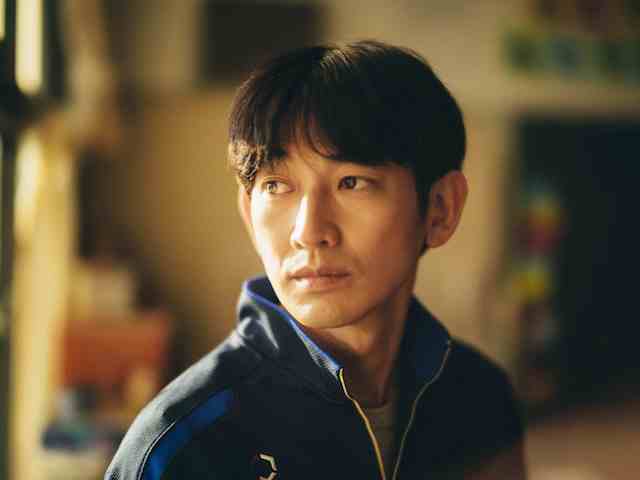
@Courtesy of Well Go USA Entertainment
Q: The title of this film, “Monster,” is an attention grabber. There are people who act like monsters in order to protect something, others have become like monsters because of something that happened to them and there are people who lie and have a monstrous personality. Whether having a monstrous mind is originally what makes us human in the first place, the word “monster” is a very important one. What are your feelings towards the word “monster?”
Yuji Sakamoto: This title was given by the producer Genki Kawamura, and I was opposed to the title at first. While both Producer Yamada-san,and Kore-eda-san were in favor of the title “Monster,” I didn’t like it and tried several times to come up with a different title, but couldn’t get an OK. In the end, Director Kore-eda said to me that he wanted to make “Monster” in the sense of depicting the monster within people, or the way they think of themselves as monsters under social oppression, and when I heard his explanation, I said, “I understood.”
Q: Composer Ryuichi Sakamoto provided two songs for this film. What kind of discussions did you have with Kore-eda-san about how to use them in the film? Or was this a decision solely made by Kore-eda-san?
Yuji Sakamoto: We never talked about it. From the beginning, when I saw the film, the sound was already attached to the footage to some extent. Director Kore-eda-san had a very clear idea of what he wanted to do. I don’t think he was worried about consulting with anyone.
Q: In this film, normally when there’s a fight between students, you first hear from the student who got into the fight, then from the students around him, and then from the teacher in charge of that student. Here, the school immediately apologizes because they are afraid of monster parents (This refers to parents who make self-centered and unreasonable demands of schools, etc). What do you think about such bad habits in the field of education?
Yuji Sakamoto: It’s always been the case that there were bullies. This is due to the fact that when there’s a case of failure, Japanese people lack the ability to manage them correctly. The ability of a person who has made a mistake to say, “I made a mistake, I failed,” and then, for everyone to correct it by asking what they should have done differently, may be a difficult and challenging task for everyone, but to do that in Japan is very low. We don’t have that kind of mindset.
We eliminate the bad people or pretend they are no longer there. If there’s a problem of bullying in a school, it’s very important to disclose the problem, then examine and correct it, asking how it could have been prevented, where the problem was, what the bad person should do for others, and what should be done in the future.
That’s what’s missing — we pretend it wasn’t there. For example, if there was bullying at school, everyone would be erased and be replaced, and they would pretend that nothing happened. Because of that kind of social system, there has always been an inability to admit bullying. if you think that the moment you admit it, it’s all over, you will turn in the direction of hiding it, which is a big problem.
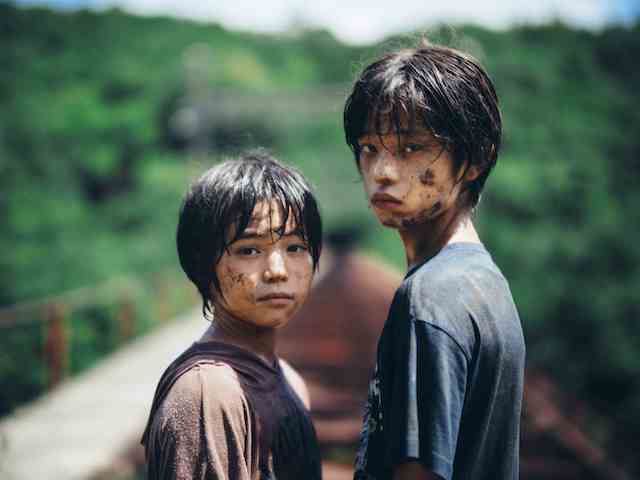
@Courtesy of Well Go USA Entertainment
Q: There’s a scene in the music room where the principal (played by Yuko Tanaka) and Minato Mugino (played by Soya Kurokawa) are playing instruments. What did you pay attention to when you were writing the script in terms of such dissonance and sound effects throughout the film? It was wonderfully directed in this three-part structure.
Yuji Sakamoto: To a certain extent, I had some assumptions. I don’t know how it is in the U.S., but when you are at school in Japan, after school, the brass band practices their instruments, and the sound is usually heard somewhere in the distance, not necessarily in the music room only.
I hear the sound of the brass band practicing somewhere, which is a common occurrence in Japanese schools. That memory remained strong in my mind, so I decided that the sound heard somewhere in the school would be the heavy sound of horns. I prepared three points in the script where the main sounds would coincide with each character. The sound was more powerful than I expected, heavier and stronger than expected, I was surprised.
Q: You wrote the screenplay for “Tokyo Love Story” at a very early stage of your career. It was successful, and you are still writing screenplays. Is there any series that you feel has been a turning point in your career?
Yuji Sakamoto: I think “Mother” is the easiest way to put it. Until then, I had always wanted to make hit dramas. However, I have changed my writing style and planning since then. I have been doing this style for 13 years, thinking that I could be pushed out of the entertainment industry at any time. “Mother” didn’t sell well in the U.S., but remakes of the series have sold well in Europe, South America, and Asia, so, in that aspect, it has been a big deal for me.
Q: In recent years, Kore-eda has worked with Juliette Binoche in France and Song kang-ho in Korea, do you have any interest in taking on the challenge of overseas’ projects?
Yuji Sakamoto: I would like to do that very much. There are two ways. One is to take a work made in Japan overseas while staying in Japan. That would be good to do by presenting it on Netflix or something like that. I would also like to work with overseas staff and cast members and present my work in their countries. It may not be realistic to do so in countries too far away, but I really hope that we can do it in Korea or China.
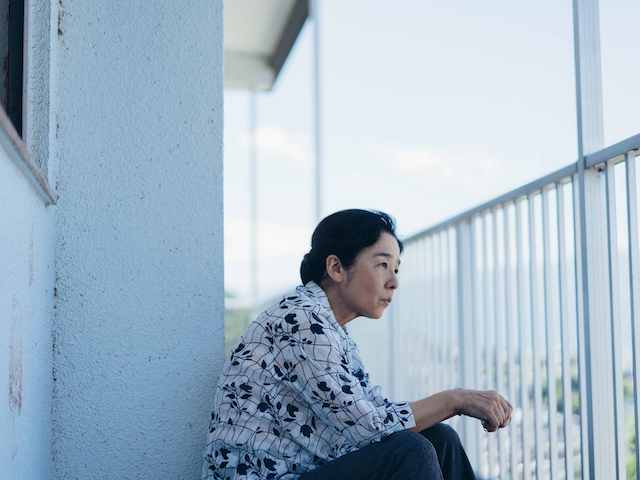
@Courtesy of Well Go USA Entertainment
Check out more of Nobuhiro’s articles.
Here’s the trailer of the film.

